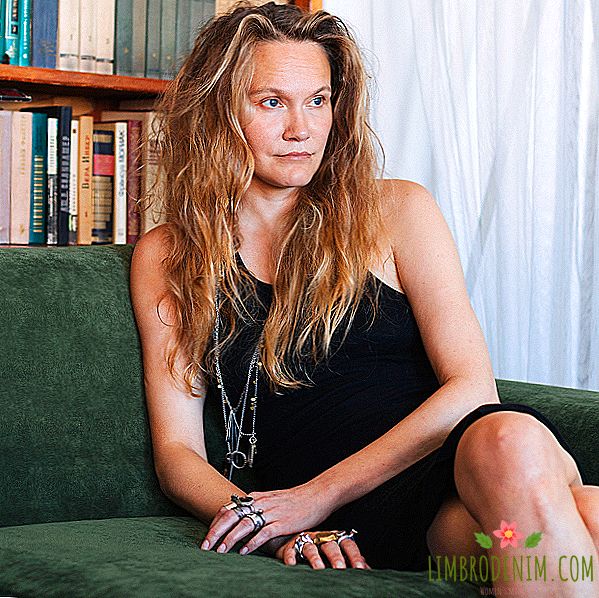"Parental care": Why the service for the control of adolescents is not needed

margarita virova
Yesterday one of the main news of the Russian-language Facebook was the launch of the service "Parental Guardianship" (at first it was called "Parental Control"), which was presented by the company Social Data Hub, specializing in the analysis of Internet data. The slogan “We are better than the FSB”, which provoked stormy protests, has already been replaced by the creators with the benevolent phrase “We will keep your children” - but this is unlikely to make the service intended for surveillance more ethical.
Social Data Hub

The phrase "parental control", of course, is not new: many Internet service providers and antiviruses provide services to limit the activity of children on the Internet. As a rule, they allow you to allocate the time that the young user can spend on the network, set up a secure search and a list of prohibited sites - such services are popular among parents of younger students, whose concern about the presence of children in the adult Internet can often be justified. Applications that help locate a child using GPS are also useful: it will reassure the parent if the scattered child does not get in touch and even more so in the already serious case of his loss.
But the invention of Social Data Hub, intended, rather, for parents of adolescents works very differently. It analyzes the behavior of the child in social networks and notifies the guardians about his "dangerous" movements in the network: these can be likes for videos or comments of "extremist content", attempts to join communities with "suspicious" content, or network friendship with "doubtful personalities." It is assumed that in this way parents will be able to find out when it is time to talk with the child about sex, if he has not contacted potential pedophiles and if he is going to bring a gun to school in an hour.
For the past day, the company's founder, Arthur Khachuyan, gave several detailed interviews and tried to fight back the squall of accusations on his Facebook page. He explains that the service only analyzes open data - that is, at least it cannot track personal correspondence. The most independent adolescents are offered, apparently, to create fake accounts and learn the rules of anonymous use of the Internet from a young finger. Nevertheless, the service promises to notify regularly about any dubious action of “the future of Adolf Hitler” (quoted from Khachuyan’s post, which has since been edited), and will help you to choose a happy future for him, based on what the teenager is interested in, will recommend suitable high school. Khachuryan says that the last word still remains for the parents - the service does not assess the likelihood of whether a person will act in accordance with the activity on the Internet. “A parent is receiving notices like“ Your child has become interested in drugs. ”Or you will learn that your daughter has an adult male friend who likes child porn,” explains Arthur Khachyan.
The main circumstance that fundamentally negates the observance of ethics of relationships is that “Parental care” can (and should be) supposedly be used secretly - the child will not know that the parents have connected to the service. This is its main and not the best difference from services that help preventively protect a child from traveling to dark corners of the network. An even bigger problem is that the service is arranged according to the principle “make your own conclusions”: by subscribing to “Parental Care” you will simply receive a selection of the most dubious and unpleasant actions of the object of surveillance, which means you will not see the full picture of its behavior on the Internet . But get a chance to warm up your own paranoia many times faster than if you would ingenuously zafrendili child "VKontakte" or on Facebook.

By subscribing to Parental Care, you will not see a complete picture of the child’s behavior on the Internet, but you will get a chance to warm up your own paranoia.
The Medusa edition reports that Arthur Khachuyan was inspired, in particular, by the material of the journalist Galina Mursaliyeva about the "blue whales" - the one after which a large-scale conversation began on how we should behave with children growing up in the Internet era. Recall that an article published in Novaya Gazeta was criticized more than once for having been built on the emotional testimonies of parents who lost their children and accused the Internet of their suicides. As a result, nothing prevented the discussion of "suicidal groups on the Internet" to reach the legislative level - although psychologists and suicidologists agree that being in such communities can be a trigger, but by no means the main reason for their death.
In Russia, the analysis of behavior on the Internet with the Roskomnadzor looming in the background and real deadlines for reposting “extremist materials” is a twofold tool, and it doesn’t work very well all over the world. Artificial intelligence diligently acts according to a predetermined algorithm, but to launch it as a reliable assistant in the sphere of relations and upbringing is rather a bad idea. By tracking someone else’s actions on the web, in reality we’ll be dealing not with facts and evidence, but with our interpretation of these actions. In 2013, in the US, a cop-cannibal case — a police officer Gilberto Valle — who had fun at the fetish site in the evenings after work, where he described his fantasies about killing and eating about a hundred women, was arrested on the complaint of his wife. After sixteen months, during which the investigation was trying to find evidence in the chat logs that Valle was taking real steps towards the crimes, the defendant was acquitted by a jury. The former policeman did not become a criminal, but to this day he continues to be interviewed under shocking headlines, in which he explains that fantasy does not mean that there are specific intentions, but what he does at home while no one sees is solely his concern. .
After all, adolescents are no longer eight years old, who really need to be protected from a lot of knowledge. Being interested in "bad", forbidden, wrong and showing curiosity about the most diverse phenomena that fill the world is an important part of growing up and gaining the experience of independence. In today's social reality, we all have access to the so-called dubious information, and the key role is played not by what we learn, but by the way we comprehend it. Is it fair to deny a man who has long since got up from a pot to be able to properly manage his judgments? The best way to worry about the safe and healthy behavior of your child is to learn to talk openly with him, including on “dangerous” topics, without installing an intermediary in the form of a secret Internet police. So, you can give him the tools to limit yourself from everything dangerous - not only during adolescence, but also in the future.
Cover:SnapCraft - stock.adobe.com




